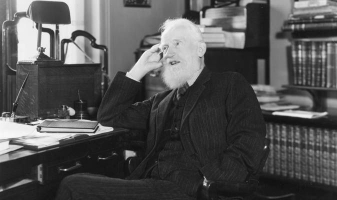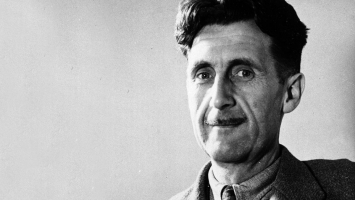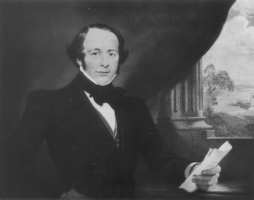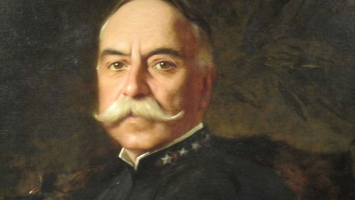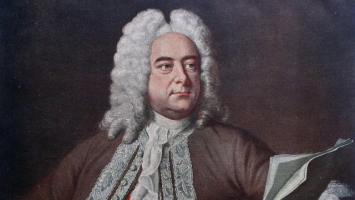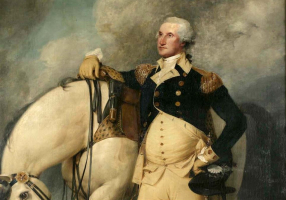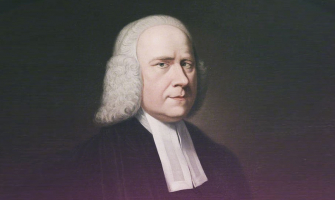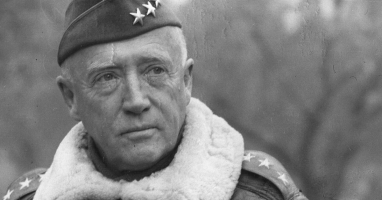Top 10 Interesting Facts About George Eliot
The English novelist and poet George Eliot, who was born on November 22, 1819, is well known for his works like Middlemarch and Silas Marner. The author, whose ... read more...true name was Mary Anne or Marian Evans, wasn't a stuffy Victorian despite writing in that era. Among her many linguistic achievements is the invention of the word "pop music." She had a very scandalous love life. Here are some interesting facts about George Eliot.
-
Men were drawn to Eliot despite her unassuming appearance. "Now in this immense ugliness dwells a most strong beauty which, in a very few minutes, sneaks forth and fascinates the mind, so that you finish, as I ended, in falling in love with her," James wrote in the same letter where he branded her "deliciously terrible." She spent more than two decades with the philosopher and critic George Lewes; after a number of liaisons and a marriage proposal, she declined. But because Lewes was already married, many people in Eliot's social circle avoided her, including her brother. Even though Lewes was unable to achieve a legal divorce from his estranged wife, he and Eliot cohabitated until his passing in 1878, and she went by the name Mrs. Marian Lewes.
She worked through her sadness following Lewes' passing by revising his works and spending time with her accountant and attorney, John Cross. Eliot, who was 60, and Cross, who was just 40, fell in love and were married in the spring of 1880 at St. George's Church in London.
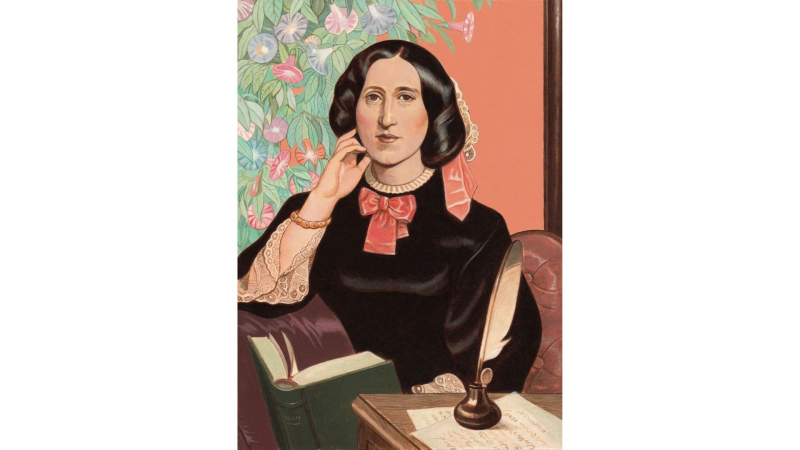
Source: The New Yorker 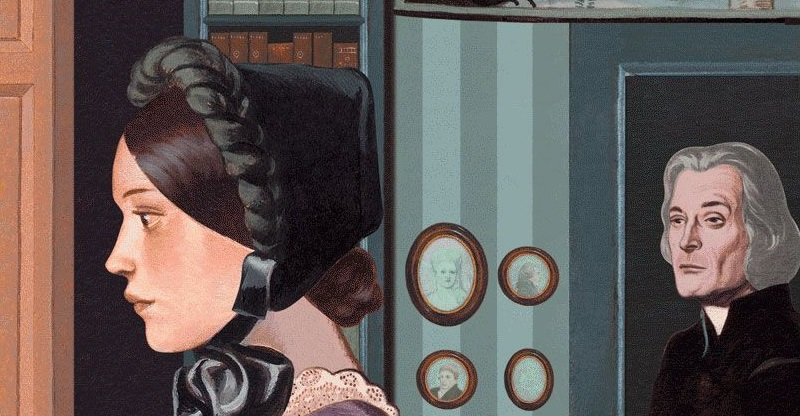
Source: Literary Hub -
George Eliot moved to London in 1850 to pursue his goal of becoming a writer. Eliot contributed essays and reviews under the pen name Marian Evans in the early 1850s to The Westminster Review, a London-based publication established by the philosophers Jeremy Bentham and James Mill. Her publisher at Rosehill, John Chapman, established the left-leaning publication The Westminster Review. Eliot thus took on the role as his assistant editor. Though her position was anonymous, she quickly rose to the position of de facto editor for the progressive publication. Years later, in the journal she had formerly edited, other authors evaluated Eliot's own works under aliases.
In the aforementioned journal, Eliot started sharing her personal opinions about the political and social circumstances in the society she lived in. She advocated for women, the working class, and other modern causes, many of which were based on her personal life. She gradually displayed her political leanings, switching from reformist to revolutionary. Although Chapman seems to be the editor due to her involvement with the Westminster Review, George Eliot has really held the position of the de facto editor of The Westminster Review.
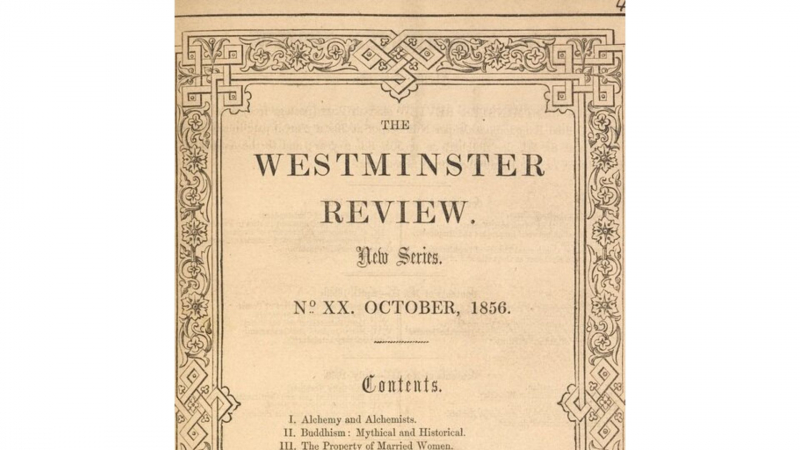
Source: saintmargarets.ca 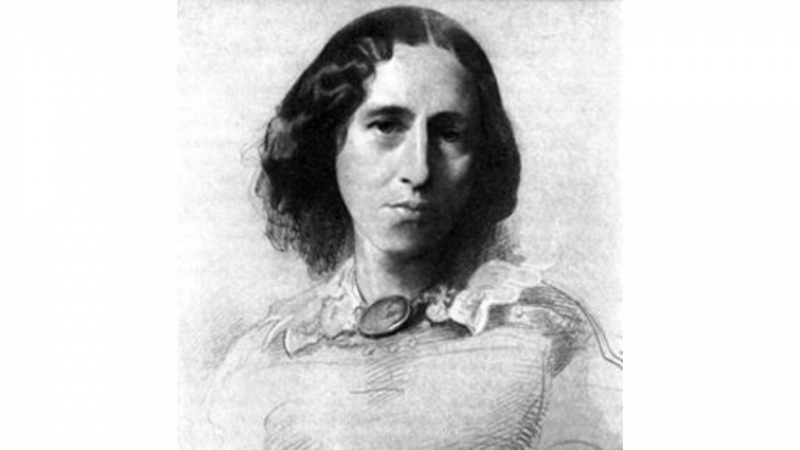
Source: Poets.org -
The couple spent their honeymoon in Venice, Italy after being married. In any event, Eliot was aware that something was awry despite the fact that Cross informed his sister in a letter that he was enjoying himself. Her new spouse was losing weight, anxious, and melancholy. Cross leaped from the balcony into the Grand Canal as she was chatting to the doctor she had sent to their hotel room.
A hotel employee and the private gondolier the couple had hired to take them around the canals helped Cross. Eventually, the newlyweds continued their journey, and they remained together until Eliot's passing later that year. His plunge is the subject of ongoing conjecture among historians, who question whether it was a suicide attempt (Cross may have had a personal and familial history of mental illness) or a case of heat-induced insanity. The Honeymoon, written by Dinitia Smith in 2017, is based on the enigmatic event.
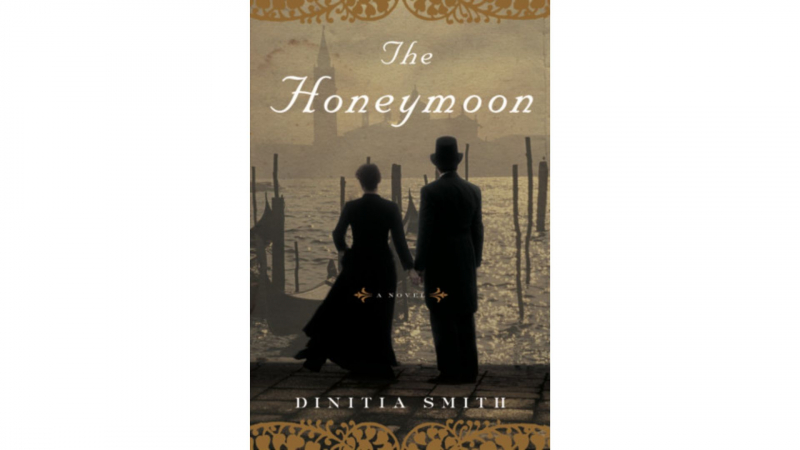
Source: Goodreads 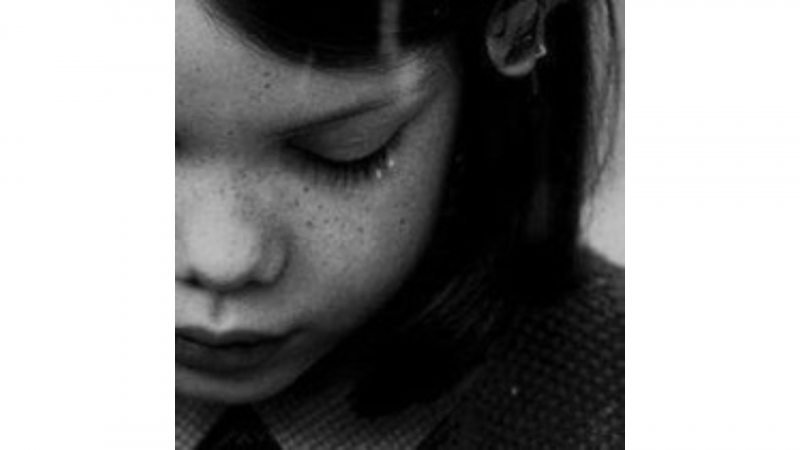
Source: wordsmusicandstories -
One of the interesting facts about George Eliot mentioned in this article is that he wasn't a fan of most women writers of her day. Eliot had some harsh comments for other female writers, but she was by no means a sexist. Eliot bemoaned the frivolous characters and unrealistic plots that, in her opinion, were a near-universal feature of books produced by women at the period in an anonymous essay titled "Silly Novels by Lady Novelists." Eliot's piece, which was published in The Westminster Review in 1856, said that these writings, which were rife with clichés and impossible romantic conclusions, made educated women appear dumb.
The literary style of other women of her day was also critiqued by her, who said that they "mistook affectation for originality, ambiguity for depth, and bombast for eloquence." She acknowledged, nevertheless, that not all works by women authors fell into this trap, praising authors like Currer Bell (Charlotte Bronte),and Elizabeth Gaskell.
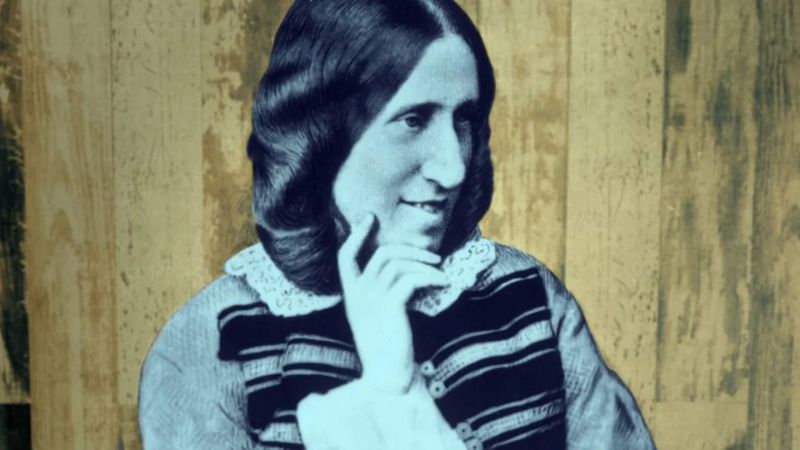
Source: Mental Floss 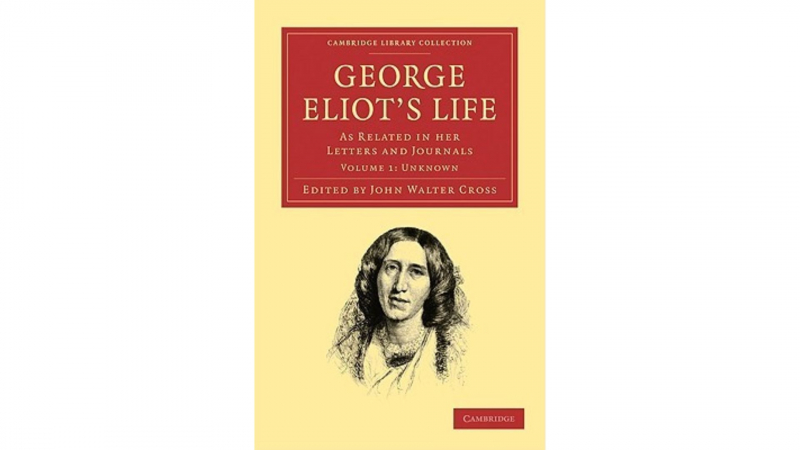
Source: Goodreads -
Another intriguing fact about Eliot that people might not know is that she had the privilege of education. George Eliot's father invested in her education despite the fact that she was not physically appealing but had a brilliant mind. She started attending Mrs. Wallington's school when she was nine years old. After being tutored by Maria Lewis, Eliot enrolled in Miss Franklin's school in Coventry shortly after turning 13 years old. From her early schooling in religious institutions, Eliot gained a strong dislike for evangelicalism and learnt to behave properly.
After that, Eliot had just a brief formal education because, at the time, it was unusual for women to receive such an education. However, Eliot was permitted to spend time at the Arbury Hall library since her father had a significant part in the Arbury Hall and Estate. This made it possible for her to pursue her studies through independent study. Eventually, George Eliot had the chance to enroll in a top university. She soon became one of Bedford College's first graduates.

Source: Arbury Hall library 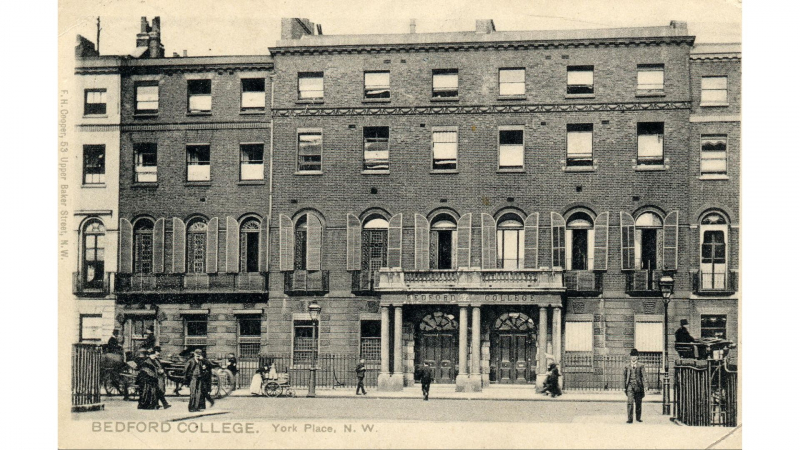
Source: Bedford College -
One of the interesting facts about George Eliot is that George Eliot is not her real name. The huge Arbury Hall and Estate in Warwickshire, England, which has hundreds of acres of surrounding gardens and farms, is where George Eliot was born. Her father, Robert Evans, was a manager and agent for the estate's proprietors, the Newdigate family. His duties included managing the coal mine on the site and collecting payments from tenant farms.
Female authors were frequently published using their true identities during George Eliot's time. Eliot, though, dared to stand apart. An intriguing tidbit about George Eliot is that she really went by the name Mary Ann Evans. She chose to write under the pen name George Eliot nevertheless because she didn't want to be limited by preconceptions. Eliot chose to adopt a pen name in addition to avoiding writing about women in order to keep her personal life and fiction writing separate. In addition, there were rumors that George Eliot's fame protected him from the media's attention because of his connection with George Henry Lewes, a married man. But whatever her motivation, George Eliot is unquestionably a brilliant writer.
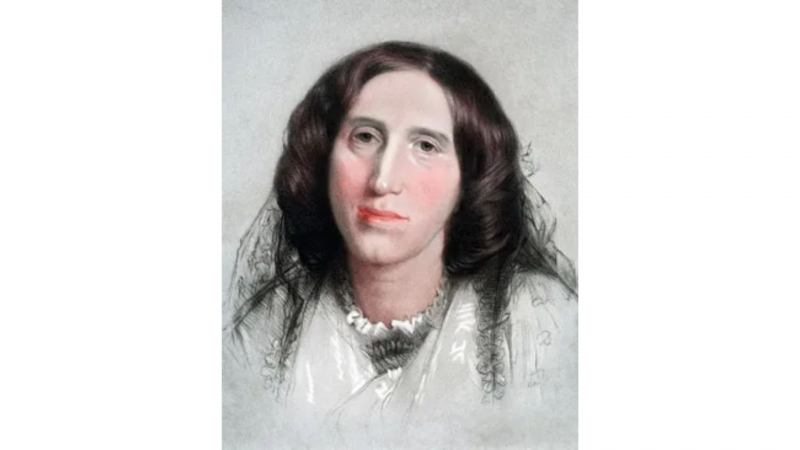
Source: The New Yorker 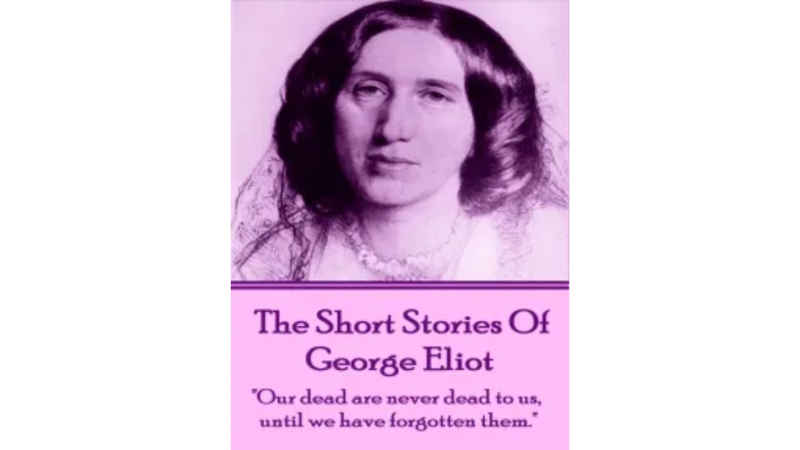
Source: scribd -
Through the course of her writing career, George Eliot created several terms that are still in use today. She was the first, for example, to use the term "browser" in the contemporary meaning of someone who is idly glancing about (like a browser in a bookstore). The term "browser" once meant "an animal that seeks twigs to eat," which is an intriguing detail about George Eliot. The Oxford English Dictionary defines a browser as "a person who removes the leaves and twigs of trees to use as nourishment for animals in winter" in the 16th century. In the future, it came to refer to an animal that sought out leaves and branches to feed. The phrase was originally used to refer to a person broadly observing something in George Eliot's historical novel Romola. She refers to a number of Bartolomeo Scala's pals as "amiable browsers in the Medicean park" in the passage.
Floppy, lampshade, noon, pop, and self-criticism are just a few of the other terms Eliot created. In fact, Eliot was able to make contributions to both the English language and our literature.
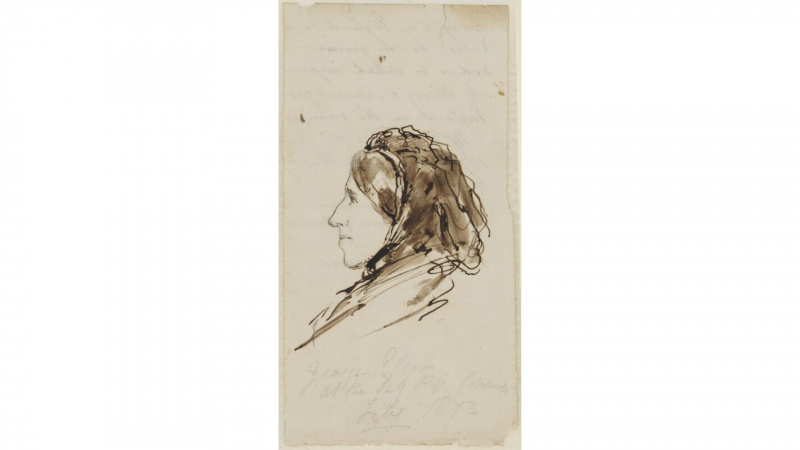
Source: npg.org.uk 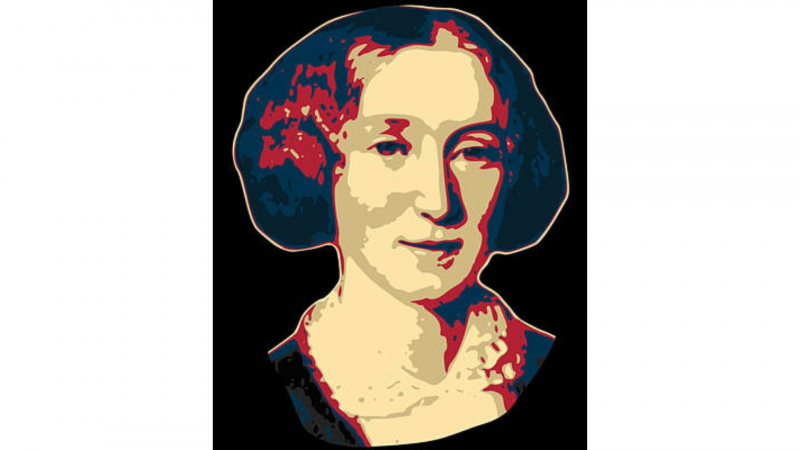
Source: Fine Art America -
During her lifetime, Eliot's appearance was a topic of intense debate, and readers are still fascinated by it now. In letters to friends, Eliot made fun of her looks, while Henry James once called her "magnificently ugly, wonderfully repulsive" in a letter to his father. He continued by describing the "horse-faced" author's physical shortcomings, which included a "huge pendulous nose," a low forehead, and terrible teeth.
As a young woman, George Eliot made unpleasant, unfunny comments about her appearance in letters to friends. However, she also realized that she had more important things to focus on, such as the passionate commitments she made to men who were not popular in her social circle. Additionally, George Eliot's intelligence was sufficiently broad to refute the simple, post-Freudian readings of Johnnie Cross's famous jump, which simply said that Eliot was too horny and unattractive for Cross to manage. In her books, Eliot was incredibly skilled at capturing the complexities of want and repulse, and in real life, she had experienced what it was like to have a fulfilling, long-lasting relationship with a passionate and loving partner.

Source: Ian Brodie 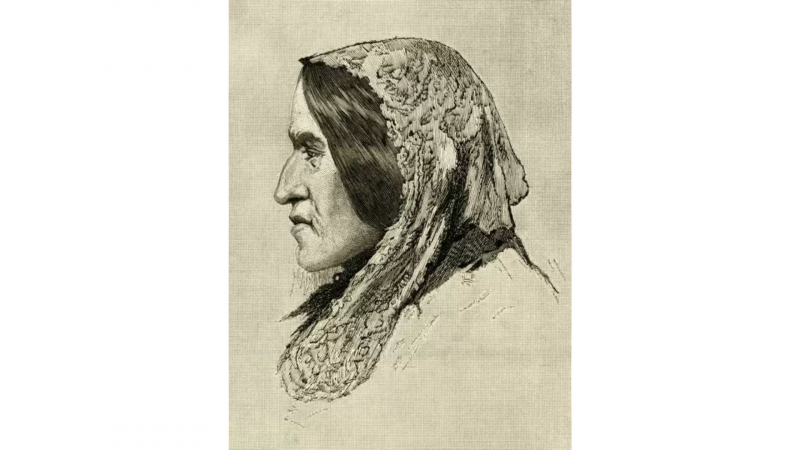
Source: prints-online -
One of the interesting facts about George Eliot is that she was a radical thinker and a silent agnostic. After her mother passed away in 1836 and her brother got married, Eliot relocated to Foleshill, close to Coventry. She had no idea how significant an influence such a decision would have on her life. Eliot quickly joined Coventry society, where she made connections with liberal philosophers. A fascinating tidbit about George Eliot is that she frequently visited the "Rosehill" location, where the organization congregated to discuss their extreme viewpoints. Robert Owen, Herbert Spencer, Harriet Martineau, and Ralph Waldo Emerson are examples of these radical philosophers.
George Eliot eventually encountered radical and agnostic theologies through the Coventry organization. She was introduced to the works of Ludwig Feuerbach and David Strauss, two authors who questioned the biblical accounts. Eliot was definitely impacted by these encounters. In actuality, she translated David Strauss' "The Life of Jesus" (1864) into English as her first significant contribution. But her father was furious when Eliot started publicly criticizing her religious convictions. As a result, she faithfully went to church up to her father's passing.
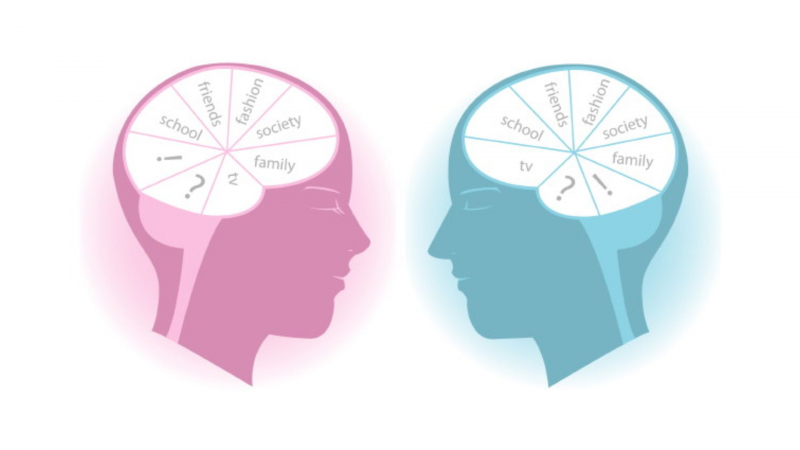
Source: Quality Digest 
Source: Elon News Network -
Although Eliot was fluent in several current and ancient languages (including Latin, Greek, and Hebrew; French, Italian, and Spanish), the majority of her translations were from German. She demonstrated her proficiency as a translator with her translation of Strauss' Das Leben Jesu. Her name became well-known in Victorian religious discussions as a result of her book. On the basis of this, Eliot published the essay Translations and Translators in 1855. Eliot wrote it from the perspective of a seasoned journalist who may have been thinking about writing novels at the time. The article demonstrates Eliot's keen understanding of translation as a difficult job and of the translator's function as a bridge between various language and cultural realities.
Eliot used her linguistic abilities to translate foreign works into English throughout her life. She translated very contentious German works, including Das Leben Jesu by David Friedrich Strauss, which asserted that Jesus Christ was a genuine person but not divine. (One English lord who read her translation referred to it as "the most pestilential book ever spat out of the jaws of hell.") By incorporating elements of these philosophical and theological concepts into her own writing by translating works by Benedict de Spinoza's Latin Ethics and German scholar Ludwig Feuerbach's The Essence of Christianity.
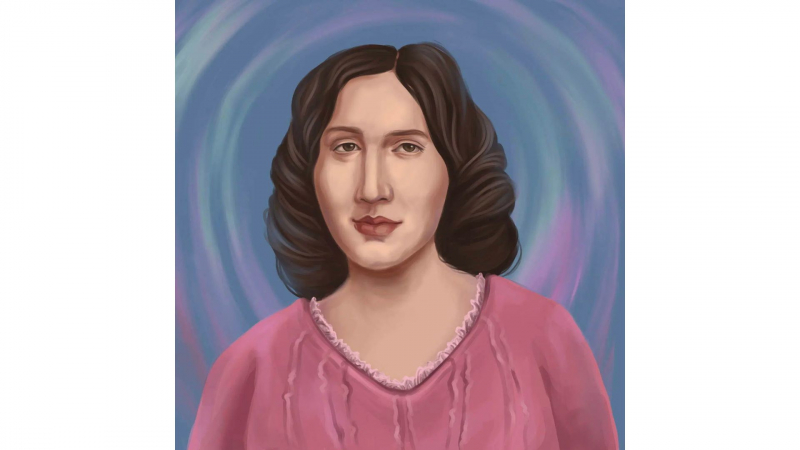
Source: Book Analysis 
Source: Akorbi












